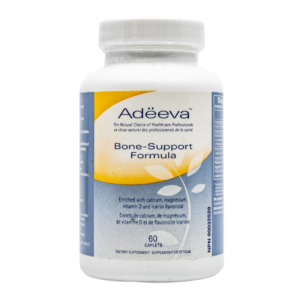
L-Carnitine: A novel supplement to help prevent and treat congestive heart failure?
Source: BMC Cardiovascular Disorders (July 21, 2014)
Lifestyle Medicine Update (June 25, 2024)
Congestive heart failure is a leading cause of hospital admissions in people over the age of 65, but the diet and lifestyle practice you employ when you are younger largely determines if this serious, life-threatening problem will develop when you get older. As of 2012, 4.3% of North Americans 65-70 years of age had congestive heart failure, and projections estimate that this percentage will increase to 8.5% by the year 2030. So, things are getting worse. There has been a rise in the incidence of congestive heart failure in recent years. Clogging up your coronary arteries with cholesterol is a leading cause of congestive heart failure (ischemic heart disease), but there are other causes (COPD, emphysema etc.). One intriguing factor is that the body makes less L-Carnitine and Coenzyme Q10 as we age. And studies show that when these supplements are given to congestive heart failure patients they often improve -meaning that their heart pump gets stronger, which helps to reverse the condition. I have provided many updates on Coenzyme Q10 in the past that you can search under my name, but today I want to address the lesser-known supplement known as L-carnitine.
The heart muscle and other tissues in the body rely on L-carnitine to transport fat into the energy factory of the cell (mitochondria). Once in the mitochondria, natural processes occur that convert these fat molecules into energy (ATP); energy the heart muscle uses for its pumping action. Thus, a deficiency in L-carnitine (which is not uncommon in the aging process) impedes the heart muscles’ ability to generate optimal energy.
As a result, the heart pump becomes weak, fluids back up in the system, the lungs fill with fluid making it hard to breath, ankles swell, and other problems occur. As of 2024, there is no cure for congestive heart failure. Patients are given drugs to help manage it, but the 5-year survival rate is only about 50% (https://www.medicalnewstoday.com/articles/321538#faq) So, in addition to a healthy diet and exercise, I recommend that individuals begin taking a supplement containing CoQ10, Hawthorn, L-Taurine and Quercetin by about age 45, to help keep the heart muscle strong. These four nutrients have proven value in helping to optimize energy production in the heart muscle and they support cardiovascular health in other ways. But studies show that in patients who are showing early signs of congestive heart failure, the further addition of 2-3 gm of L-carnitine supplementation each day may be also be a wise thing to do.
As reported in the summary paper found in BMC Cardiovascular Disorders in 2014, L-carnitine supplementation has improved many cases of congestive heart failure. This supplement has been shown to increase energy production in the heart muscle, re-strengthening the heart pump mechanism. It also shows other benefits. The researchers cite an important systematic review paper showing that L-carnitine administration was associated with a significant reduction in all-cause mortality, ventricular arrhythmias, and angina in the setting of acute myocardial infarction (heart attack). So, keep L-carnitine in mind, as it may benefit you one day. Certainly, around age 45 I believe it’s a good idea to support your heart’s pumping mechanisms by taking a supplement each day that provides CoQ10, Hawthorn, L-Taurine and Quercetin. L-carnitine is a further consideration for some people.
I have included the references for congestive heart failure and L-carnitine in the text below.
References:
Causes and Diagnosis of Congestive Heart Failure: National Library of Medicine: Congestive Heart Failure https://www.ncbi.nlm.nih.gov/books/NBK430873/#:~:text=Congestive%20heart%20failure%20(CHF)%20is,blood%20to%20the%20systemic%20circulation.
Shang R et al. Effective dosing of L-carnitine in the secondary prevention of cardiovascular disease: a systemic review and meta-analysis. BMC Cardiovascular Disorders. July 21, 2014. Effective dosing of L-carnitine in the secondary prevention of cardiovascular disease: a systematic review and meta-analysis | BMC Cardiovascular Disorders | Full Text (biomedcentral.com)
Roger V.L. Epidemiology of Heart Failure. Circulation Research. 2021. 128 (10): https://www.ahajournals.org/doi/10.1161/CIRCRESAHA.121.318172
Mayo Clinic Proceedings. Congestive Heart Failure: Insights from Epidemiology, Implications for Treatment. https://www.mayoclinicproceedings.org/article/S0025-6196(12)60078-0/fulltext
Eat Smart, Live Well, Look Great,
Dr. Meschino
Recommended Supplements

Dr. James Meschino
ABOUT THE AUTHOR
Dr. James Meschino, DC, MS, ROHP, is an educator, author, and researcher having lectured to thousands of healthcare professionals across North America. He holds a Master’s Degree in Science with specialties in human nutrition and biology and is recognized as an expert in the field of nutrition, anti-aging, fitness, and wellness as well as the author of numerous books.

